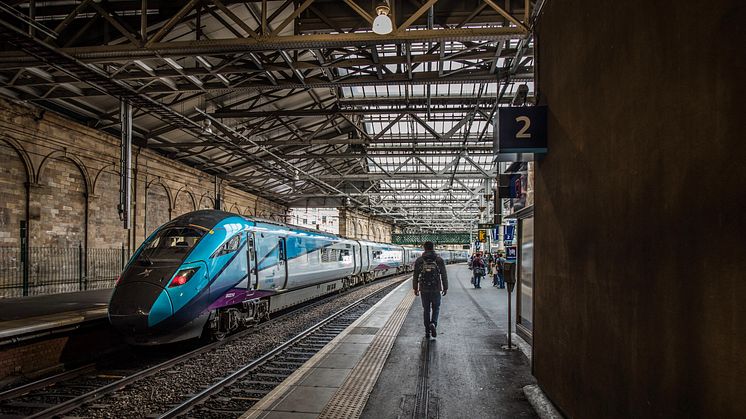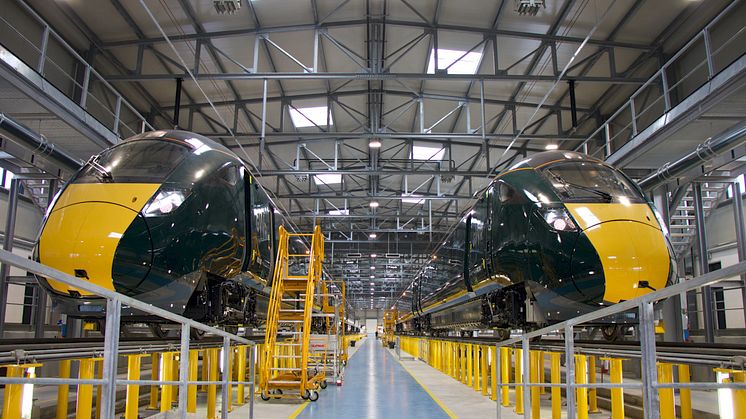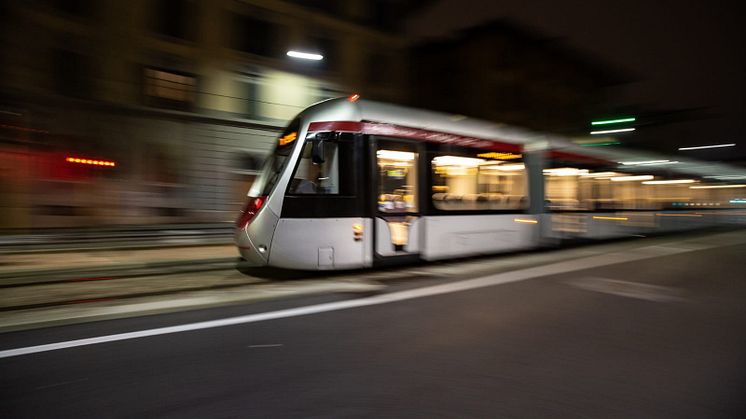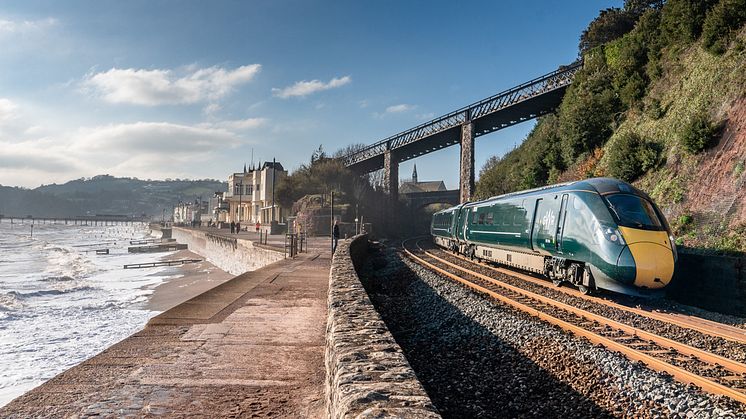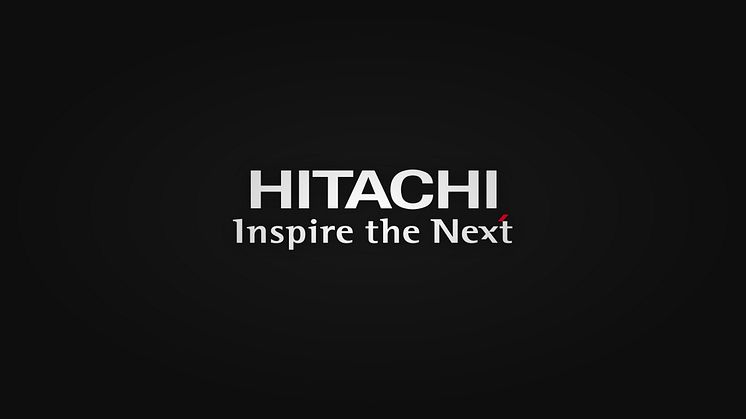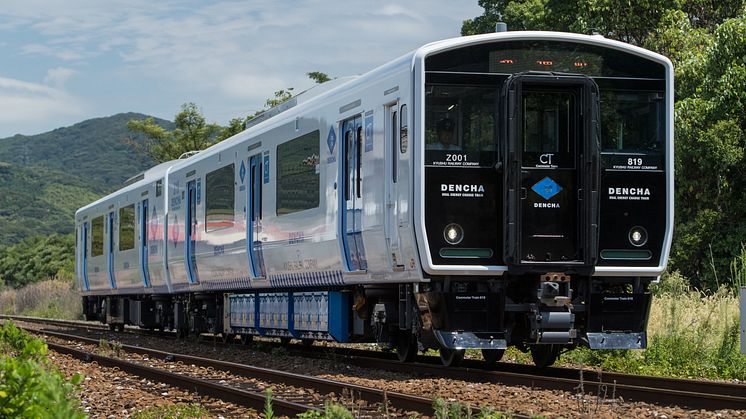
News -
JR Kyushu and Hitachi Rail celebrate five year anniversary of DENCHA, world’s-first battery train for an AC network
- Celebration of fifth anniversary of the DENCHA train’s, the world’s first battery-powered train charged by AC overhead lines, first journey in Japan
- Award winning fleet has reduced CO2 emissions by 2,700,000 kg in the past five years
- Success of the battery-powered fleet has seen Hitachi Rail expand its offer of battery train solutions across the world to decarbonise transport, and is a key pillar in its decarbonisation strategy.
Kyushu Railway Company (JR Kyushu) and Hitachi Rail are celebrating five years since the first run of the DENCHA train today (19 October), the world’s first battery-powered passenger train charged by AC overhead lines. Having seen the fleet cut carbon emissions, the manufacturer, Hitachi Rail, reaffirmed its commitment to alternative fuel transport offer for passengers and operators across the world.
The BEC819 series trains – branded DENCHA – completed its first journey between Wakamatsu and Orio in October 2016 and have since completed over 5 million kilometres in passenger service in the northern Kyushu region. With a top speed of 120 km/h, nearly 80% of the distance covered – 4 million kilometres – by the 18 train fleet has been on non-electrified sections of the route.
Thanks to the innovative battery technology, the DENCHA train is capable in running in two modes: on electrified sections it runs from the overhead AC power, on non-electrified sections it runs in battery mode. Additionally, the trains feature a low energy loss main circuit system that reuses regenerative energy from braking and benefits from fast charging while stopped at stations.
The trains, which won the Japan Railfan Club’s Blue Ribbon Award, significantly reduced the railway’s impact on the environment, saving over 2.7 million kg of CO2from being emitted into the atmosphere over the five year period. Furthermore, the trains are far quieter than the diesel trains they replaced and release no NOx emissions.
The DENCHA fleet was introduced to the Kyushu region of Japan to replace ageing diesel trains. Due to the relatively low traffic volume, electrification was not seen as an ideal solution for the line, instead battery technology offered reduced fuel costs and fulfilled the mission to be “friendly to the future of people and the planet".
The success of the DENCHA fleet, operated by JR Kyushu, has been the starting point for Hitachi’s development of alternative fuel transport solutions worldwide. The company, which is the principal sponsor for mobility at the COP26 UN climate change conference, has created Masaccio regional battery trains in Italy, battery trams in Florence and plans to trial an intercity battery hybrid train in UK. It also is part of a partnership with JR East and Toyota to develop hybrid (fuel cell) test vehicles, known as the HYBARI, scheduled to start running next year in Japan.
Developing innovative new low carbon technology is an important part of Hitachi Rail’s decarbonisation strategy. It is a core part of the company’s mission to enable more seamless and digitally connected journeys.
Koji Agatsuma, Group COO (Rolling Stock), Hitachi Rail said:
“The DENCHA battery trains showcase Hitachi Rail’s position as a global leader in delivering battery train technology. The benefits are clear, and five years since its first journey the fleet has reduced CO2 emissions by 2.7 million kg.
“This battery solution provides the blueprint for thousands of kilometres of unelectrified railways around the world. Through battery control technology, Hitachi Rail is determined to help decarbonise more transport networks while continuing quality passenger services.”
ENDS
For more information, please contact:
Japanese language: Ryuhei Tanaka, Corporate Public relations Department, Global Corporate Brand & Communications Division, Hitachi, Ltd. at ryuhei.tanaka.eb@hitachi.com or on +81 (70) 4550 7248
English language: Adam Love, Group Head of External Affairs on +44 7860 273 317
or at Adam.Love@hitachirail.com
Notes to editors:
A high res image of the train is available for download here.
DENCHA trains consist of two carriages in standard formation. The carriage length is 19,500 mm, width is 2,950 mm, and maximum height is 4,096 mm.
Hitachi Rail’s decarbonisation strategy is to drive a modal shift to lower carbon forms of transportation through mobility as a service; accelerate the decarbonisation of rail with electrification and batteries and to decarbonise its own activities in accordance with Science-Based Targets.


